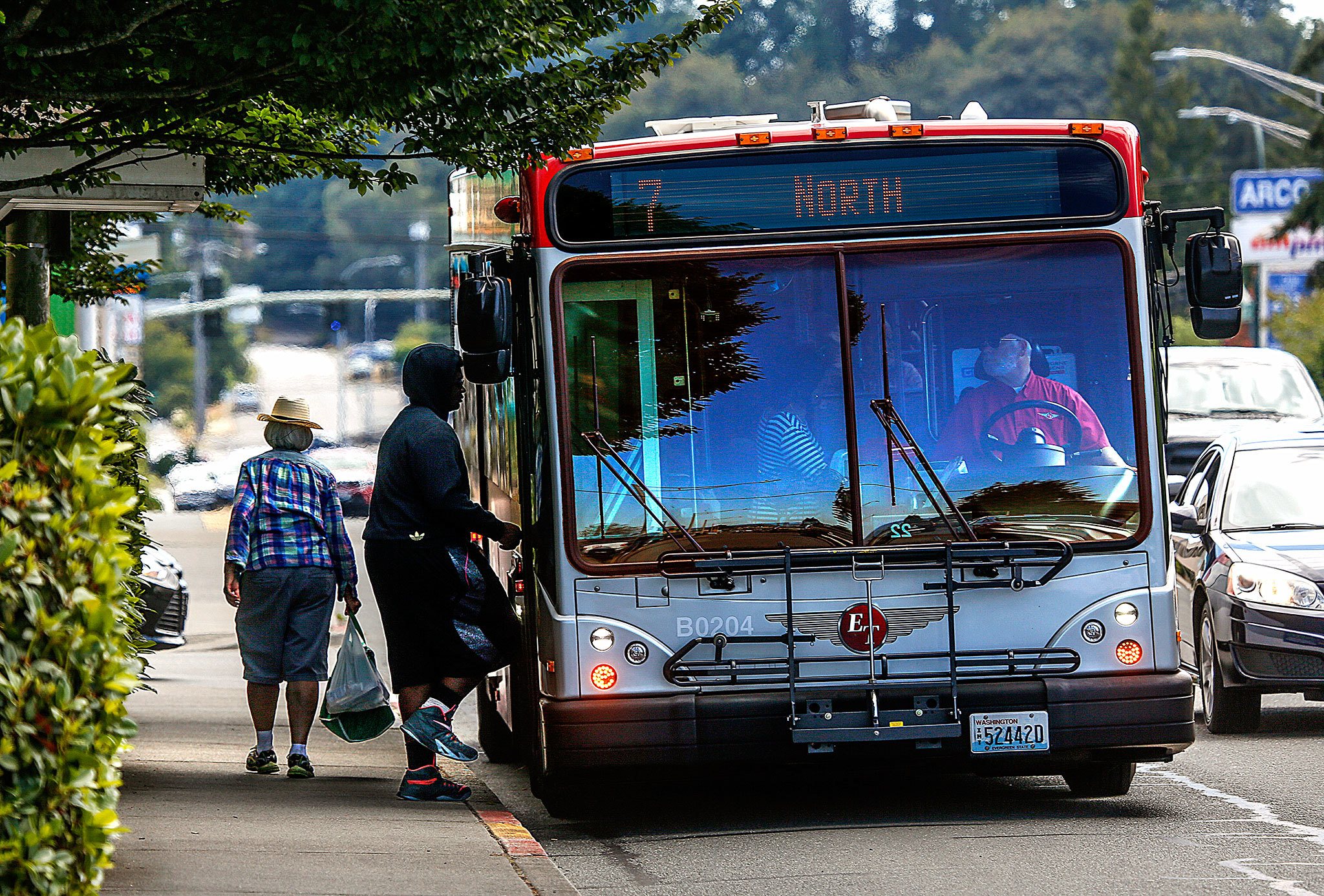EVERETT — Everett Transit has been selected to receive a $3.4 million federal grant to purchase its first electric buses.
The grant, part of the U.S. Department of Transportation’s Low or No Emission Vehicle Program, is given to agencies to replace aging and polluting vehicles with new emissions-free battery-powered vehicles.
The award to Everett will allow the city to replace four of its oldest coaches with new extended-range buses from Proterra Inc. of Burlingame, California.
Right now Everett Transit operates 42 diesel-fueled buses, some as old as 22 years.
“It’s the beginning,” said Everett Transportation Services Director Tom Hingson. “You’ve got to start somewhere.”
The 40-foot-long Proterra buses have 40 seats, just like the buses they are replacing, and can run 150 miles on a full charge. They will likely be deployed on some of Everett’s busiest routes, Hingson said, such as Route 7 up and down Evergreen Way.
King County Metro already uses Proterra buses. Other customers include the Philadelphia-region SEPTA system, the Dallas-area DART agency, and the University of Montana.
Everett Transit’s annual budget of $25 million includes about $1 million that can be used as matching funds for grants to replace vehicles and equipment.
This particular grant will require a $600,000 match from the city, Hingson said.
The grant also covers the charging stations and other infrastructure needed to run the battery-powered buses.
The savings to the city are hard to quantify.
“If anything it should reduce our operating cost across the 12-year life span of the bus,” he said.
A dozen years is the federal guideline for bus replacement, he said, after which federal grant money could be applied to replace them again. In reality, Everett Transit tries to keep its buses running much longer with extended maintenance.
Diesel right now is the largest operations cost in the transit system, Hingson said.
The old buses only get 4 to 6 miles per gallon, while the new ones draw directly from the electric power grid, which is mostly hydro power. Calculated out against the number of miles the electric buses can get on a full charge, they would get the equivalent of 17-20 miles per gallon if they were running diesel engines.
“We’re confident we’re committing to a clean environment,” Hingson said.
The grant program was authorized by last year’s federal transportation bill, with included $3.5 billion in highway funding and $1.2 billion in transit funding to help improve Washington state’s infrastructure.
“We are still waiting to hear from the feds on when the money is to be released,” Hingson said.
It usually takes up to 18 months for a vehicle to be delivered, he added.
U.S. Rep. Rick Larsen, who represents Everett and the surrounding 2nd Congressional District, announced Everett’s award Thursday.
“In Washington state transportation means jobs and these resources will help Snohomish County lead when it comes to an energy efficient system of public transportation while also reducing local carbon emissions,” Larsen said in a statement.
The complete list of grants is expected to be announced next week.
Chris Winters: 425- 374-4165; cwinters@heraldnet.com. Twitter: @Chris_At_Herald.
Talk to us
> Give us your news tips.
> Send us a letter to the editor.
> More Herald contact information.

























